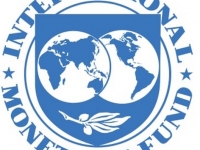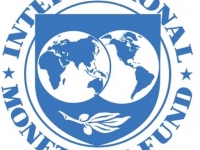Business
IMF Executive Board Completes First Review Under the ECF
Approves $M22.58 Disbursement for Benin

Benin Flag (Source: flags.net)
USPA NEWS -
The Board also approved Benin´s request to set program conditionality for 2018, and to modify the end-December 2017 performance criteria. The program approved in April 20017 aims at supporting the country´s economic and financial reform program and focuses on raising living standards and preserving macroeconomic stability.
“¢ Completion of the review enables the disbursement of US22.58 million.
“¢ Sustained efforts are needed to improve the business environment and foster greater private sector participation in the economy, including removing bottlenecks to private-sector development and leveling the playing field for all investors.
“¢ Completion of the review enables the disbursement of US22.58 million.
“¢ Sustained efforts are needed to improve the business environment and foster greater private sector participation in the economy, including removing bottlenecks to private-sector development and leveling the playing field for all investors.
The program approved in April 20017 aims at supporting the country´s economic and financial reform program and focuses on raising living standards and preserving macroeconomic stability.
“¢ Completion of the review enables the disbursement of US22.58 million.
“¢ Sustained efforts are needed to improve the business environment and foster greater private sector participation in the economy, including removing bottlenecks to private-sector development and leveling the playing field for all investors.
The Executive Board of the International Monetary Fund (IMF) today (December 1, 2017) completed the first review of the arrangement under the Extended Credit Facility (ECF) for Benin. Completion of the review enables the disbursement of SDR15.917 million (about US22.58 million), bringing total disbursements under the arrangement to SDR31.834 million (about US$45.16 million). The Board also approved Benin´s request to set program conditionality for 2018, and to modify the end-December 2017 performance criteria.---------------------------------------------------------------------------------------------------
Benin´s three-year arrangement for SDR111.42 million (about US$158.1million or 90 percent of the country´s quota at the time of approval of the arrangement), was approved on April 7, 2017. It aims at supporting the country´s economic and financial reform program and focuses on raising living standards and preserving macroeconomic stability. Following the Executive Board discussion, Mr. Mitsuhiro Furusawa, Deputy Managing Director and Acting Chair, made the following statement: “The Benin authorities have been steadfast in implementing their ECF-supported program. A stable macroeconomic environment was maintained in 2016, despite negative regional spillovers. Continued implementation of the right mix of macroeconomic and structural policies is needed to preserve hard-won gains, address financial sector vulnerabilities, and contribute to meeting the regional fiscal convergence criteria. With poverty remaining a major challenge, accelerating spending on priority sectors and protecting the poorest segment of the population will be important.“-----------------------------
“The authorities aim to further bolster domestic revenue mobilization and adhere to the programmed fiscal consolidation path, including by broadening the tax base and increasing the efficiency of public investment. The authorities also intend to maintain prudent debt management practices to smooth the long-term debt service profile and safeguard Benin´s classification as a country with a moderate risk of debt distress. Close monitoring of the debt of state-owned enterprises is also key to better assess contingent liabilities and preserve public debt sustainability.“------------------------------------------------
“In the financial sector, accelerating the implementation of the new harmonized regional resolution framework and strengthening the supervisory body for microfinance institutions, as well as addressing the high level of nonperforming loans in the banking sector, are essential to minimize financial sector vulnerabilities.“ “Sustained efforts are needed to improve the business environment and foster greater private sector participation in the economy, including removing bottlenecks to private-sector development and leveling the playing field for all investors. Greater efforts are also needed to strengthen governance and transparency.“ Source IMF, With Apo
Imf Benin Washington Dc Mitsuhiro Furusawa Deputy Managing Director And Acting Chair Rahma Sophia Rachdi J Foster
Liability for this article lies with the author, who also holds the copyright. Editorial content from USPA may be quoted on other websites as long as the quote comprises no more than 5% of the entire text, is marked as such and the source is named (via hyperlink).







